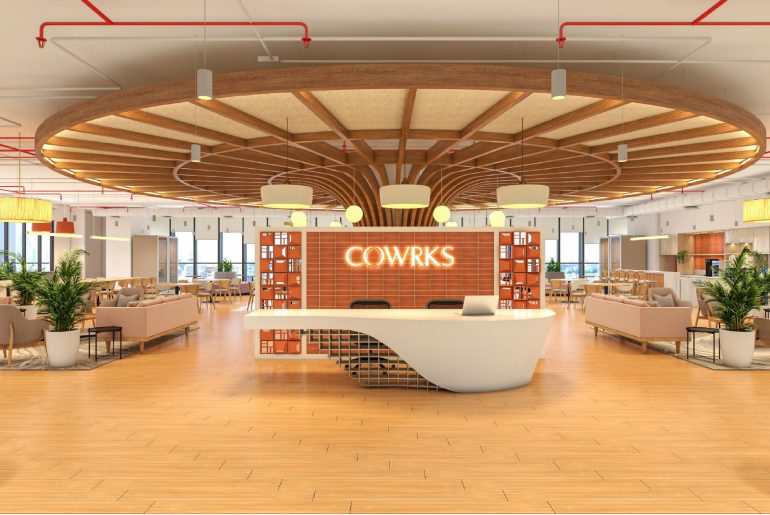The Benefits of Building a Customer-Centric Business:-
According to a Forbes interview, Jeff Bezos is famous for leaving an empty chair at the conference table and letting the meeting attendees know that it is occupied by “the most important person in the room” – customer. Keeping the customer at the centre of every decision can be challenging for any business, but Amazon makes it impossible to forget.
Simply put, “customer-centricity” is a business strategy that involves taking steps to be in your customers’ shoes and act accordingly.
Taking a customer-centric approach is more than just a feel-good mantra for organizations today. It has, in fact, increasingly become a core business requirement! A customer-centric focus can help boost revenues, build loyalty, drive performance, and increase efficiency. All of this plays an instrumental role in having an edge over competitors. If this approach is embedded in your organisation’s DNA, it can at the same time, lead to sustainable profitability.
As per a Deloitte & Touche study, businesses that implement a customer-centric strategy are 60% more profitable than their competitors.
So, let’s dive into the importance of applying a customer-centric approach to your business:
Makes the consumer journey highly satisfying:-
Only when you think from a customer’s perspective, will you be able to maximize customer satisfaction for your own brand. Think about what makes you re-purchase from your favourite brands over the others. The primary reason you may choose to do business with them is how they made you feel at every funnel of the consumer journey. They connect with you through your preferred channels of communication, ensure that they are aligned with your modes of payment, and even bring to you deals and discounts that you earnestly look forward to.
Whether it is awareness, consideration or decision, every stage of the consumer journey with your brand will benefit from applying a customer-centric approach. The reward for establishing this approach is customer retention and brand loyalty.
One of the best examples of a brand implementing a customer-centric approach and maximizing customer satisfaction through this approach, is boAt. The consumer electronics brand successfully managed to build its customer loyalty – a community famously known as boAtheads, and increased its customer base from 0.8 million in 2018 to 2 million by 2020.
Improves brand efficacy by working on constructive feedback:-
Customer feedback is the Holy Grail of any business, simply because it is impossible to cater to customers’ needs and demands without knowing them in the first place. As per a study by Microsoft, 52% of people globally believe that businesses need to take action on feedback provided by their consumers. Whether it’s good or bad, working on constructive feedback can be the first step towards transforming your business into a customer-centric company set up for growth and success.
If you listen to your customers, you are more likely to put them at the centre of your business decisions, which eventually makes it easier to retain existing customers as well as acquire new ones.
It is through customer feedback that Uber ensures only the best drivers stay on the road. Hence, one of the top things Uber drivers care about is their ratings. Mainly because, if customers keep rating them poorly, they may end up getting in trouble with the car service. Due to this customer-centric approach, Uber makes sure the most respectful riders and drivers are a part of the company.
Creates a unique customer experience by building trust and loyalty:-
Did you know? A mere 5% increase in customer retention can boost your company’s revenue by 25-95%.
Customers that have already seen value in your brand and have had a good experience purchasing/ using your products, are more likely to trust you again with their time and money. Thus, they are entitled to expect the same level of trust and commitment after every purchase. This is why customer retention efforts from your brand’s customer service team are crucial.
While the quality of your product or service plays a big role in acquiring customers, support plays a bigger role when it comes to fostering customer relationships. You end up building loyal customers when delighting and retaining them becomes your priority. Moreover, it also opens up a new stream of brand advocates–who further recommend your products and services to their peers, thus, elevating your brand reputation through word-of-mouth marketing.
Helps understand customer demands:-
Whether you are a business owner or overseeing business operations for a company, the most important question you must ask your team is: What are our customers’ demands & what will make them come back for more? The insights you gain from the answer will help you create better strategies & make informed business decisions.
How to keep customers happy? By keeping employees happy.
The key to making your business customer-centric is to invest in employees first.
While the majority of entrepreneurs are more likely to focus on the bigger scheme of things like providing incredible customer service, building a focused sales team, offering competitive pricing, and creating cut-throat marketing strategies, the success of a business lies in the happiness of the employees who run it. Unhappy and unsatisfied employees can negatively impact the output, turnover, and overall efficiency of the business, which, in turn, can have a cumulative effect on the customers.
Southwest Airlines is known for keeping its employees’ happiness at the core of its brand value. The airline treats its employees well by backing the decisions of each employee as well as providing everyone with quality benefits that keep them content and financially secure.
Adopting a customer-centric approach is a sure-fire way for a business to boost its sales and profit, and thereby grow exponentially.
Companies that follow a customer-centric approach generate more revenues, have satisfied employees and a loyal customer base. This, in turn, puts the business in a comfortable position and gives it a competitive edge over rivals. Such companies succeed in creating successful, long-lasting relationships with their customers, as they are always focused towards delivering what the customer needs by understanding and studying them thoroughly.






